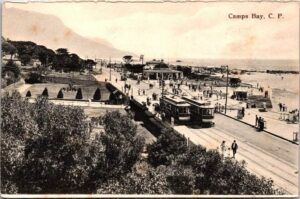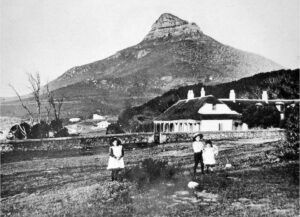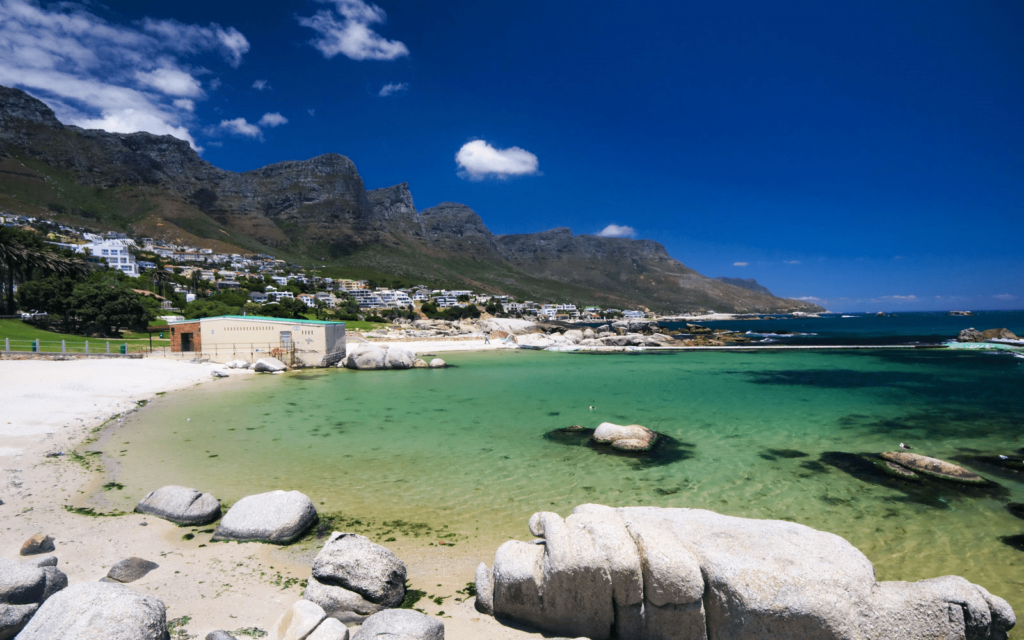History of Camp’s Bay
- Province Western Cape
- Coordinates; 33.9513° S, 18.3831° E
- Area 1.68 km2
- Municipality City Of Cape Town


Vintage pictures from Saartjie Klipkop First house in Camps Bay
Today, the suburb is an upmarket and popular area, known for its beach, which has Blue Flag status. The bay’s geography, protected from the South-Easterly winds, makes it relatively windless. Glen Beach, adjacent to Camps Bay Beach and divided by a rocky outcrop that becomes a single stretch of sand in summer, is popular with surfers but not suitable for swimming. It is usually less crowded than the main beach
Postcodes in Camps Bay are 8005 (Streets) and 8040 (Boxes)
Things to see and do in Camps Bay
- The Round House
- Little Glen playground is a playground in the Little Glen Nature Area. There is a jungle gym & tree swings
- Signal hill road
- Kloof Nek Road, one of South Africa’s oldest roads, was built in 1848.
- Ingleside Road Park has amazing views! the play area has great views of the Atlantic Ocean and The Twelve Apostles.
WEATHER IN CAMPS BAY TODAY
All listings in Camps Bay
Useful Numbers
- Police: 021 437 8150
- Traffic department: Gallows Hill: 021 444 3811
- Fire: Sea point 021 434 2020
- Water: Department of Water and Sanitation 021 546 3452/0860 103 089
- Electricity: 0860 103 089
- Ambulance: 10177
- Post office; 021 438 9640
- Library; 021 444 0487
- Closest hospital/clinic; Somerset Hospital Green Point 021 402 6911
- Pharmacy; 021 438 2088
- SPCA: Cape of Good Hope ( Grassy Park) 021 700 4140
- Schools: Camps Bay High: 021 438 1507
Camps Bay Primary: 021 438 1503
Camps Bay Preparatory: 021 438 8075 - Ratepayers Association: 083 628 9105/021 438 8287



